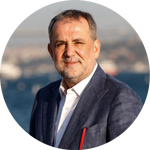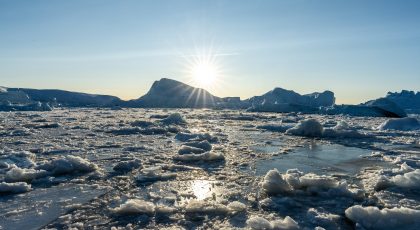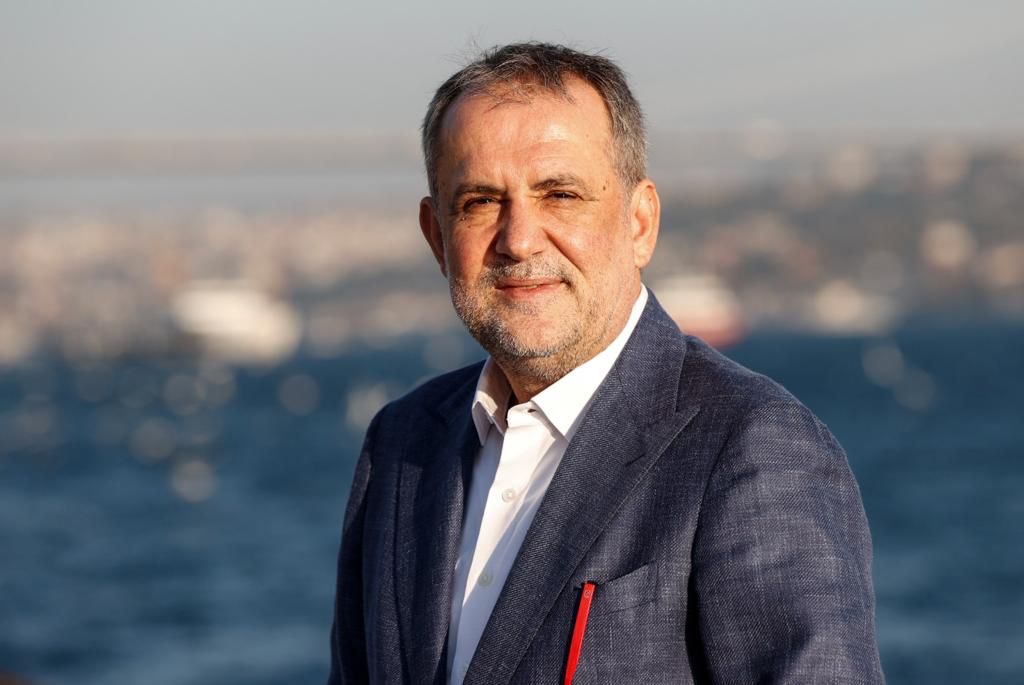‘We have a big goal. We have a dream of a carbon-free Türkiye by 2053. We continue to work toward this achievement.’
Humanity has always sought to make life easier throughout history. Since industrialization, though human-led productions have made life easier, they have increased the pressure on nature and caused the ecological balance to be shaken.
When the pressure exceeds tolerable levels, our planet reacts. Numerous problems such as increased precipitation, heat, fires, droughts, acidity in the oceans and pollution are the natural consequences of this. Humanity came together in Stockholm in 1972 under the United Nations and organized the “Environment and Human Conference” with the motto “for a good quality of life, the environment and natural resources should be protected.” At the same time, the declaration on June 5, the day of the conference, as World Environment Day, became a turning point for the issue of the environment. Therefore, 1972 changed the lack of attention given to the environment on a global scale; it was a beginning for governments to consider the environment in their policies as a key to healthy growth rather than an obstacle to development.
In Türkiye, there have been events that are turning points for the issue of the environment as well. The first of these is undoubtedly the events that took place in Istanbul. Istanbul has vast historical, natural and cultural beauty, and it has hosted countless civilizations throughout history. However, this city, which is enviously admired by the whole world, was known for its environmental problems in the ’90s, including garbage heaps in the city center, air pollution and a muddy Golden Horn. However, more importantly, the lives lost as a result of the explosion caused by the methane gas leaking from the waste accumulated in the middle of the city became a crucial turning point in taking environmental steps in our country.
Under the leadership of President Recep Tayyip Erdoğan, who was elected as Istanbul Metropolitan Municipality (IBB) mayor at the time, an environmental movement started in Istanbul. Sanitary landfills, medical waste sterilization facilities, the Golden Horn Environmental Project, an energy generation facility for landfills, water brought from Melen and Strandja, and various other green projects were implemented one by one, enabling Istanbul to breathe again.
The transformation
The environmental torch lit in Istanbul brought Erdoğan to power in 2002 during a major economic crisis. Türkiye started to benefit from environmental investments as a whole, which helped Erdoğan’s victory in the elections to an extent. The environmental movement, which started in Istanbul in 1994, spread to the whole country in a short period of 20 years. In this process, we have taken important steps to leave a livable country to future generations by protecting our air, water and soil. During this period the environmental legislation, which was 40 years old, was subjected to a comprehensive revision three times and made compatible with the changing and developing world. With the regulation, the first of which was made in 2006, a legal infrastructure was created for the first time for the management of hazardous waste, the problem of odour and noise pollution that disrupted tranquillity in the city.
In order to ensure the effectiveness of the zero waste project under the auspices of the first lady Emine Erdoğan, with the second and third comprehensive environmental legislation revisions made at the end of 2018 and 2020, a legal infrastructure was established for practices such as environmental label applications, compulsory deposit-return applications, widespread use of zero waste systems in buildings and settlements, transportation for shopping, and charging for plastic bags used for commercial purposes. In addition, to effectively combat air pollution, we have made the necessary legal arrangements, such as the widespread use of bicycle transportation, including electric scooters, the establishment of renewable energy on the open seas and ecological transitions in areas where highways divide wildlife. We have increased administrative sanctions to ensure compliance with environmental standards as well.
Clean air is the fundamental element of a healthy life. We have commissioned many projects to improve air quality. At our 355 stations in 81 provinces, we help citizens access the air quality information in their location. We established eight regional clean air centres to manage the stations more effectively. We ensured the spread of clean production activities in industrial facilities. Using our Continuous Emission Measurement Systems (SEÖS), we remotely monitor the emissions from the smokestacks of facilities with high polluting potential. We prevent loss and leakage by monitoring the solid fuels imported and domestically produced and distributed to the end-user. In 2004, we prevented the inhalation of heavy metals by banning the lead content used in gasoline. We started the smoke-free air field application in 2009. By enabling the exhaust inspections to be done online, we have reduced the bureaucracy while preventing losses and leaks. With this application, we achieved a 30% increase in exhaust emission measurements. By integrating the application with the e-Devlet system, we have enabled citizens to easily monitor the exhaust inspection processes in vehicles. We have implemented the necessary legal regulations to ensure that two-wheeled vehicles such as electric scooters, which have become more popular in recent years, can safely navigate in traffic in our country.
In addition to relieving urban traffic, we have prepared our bicycle transportation master plan to make cities and important cultural and touristic centres accessible by bicycle. Likewise, we also support district heating systems. In addition to thermal and factory waste heat, we are working on expanding geothermal energy sources in district heating.
No room for noise
We are also actively fighting noise pollution for the peace and tranquillity of our people. In this context, strategic noise maps of our cities and important resources such as airports, highways and railways have been completed. Based on the map results, we will build 60,000 square meters of aesthetically pleasing noise barriers, the first examples of which were built in Ümraniye, Istanbul. Likewise, the steps President Erdogan has taken to prevent noise and visual pollution during elections have been appreciated by all segments of society.
Solid waste and wastewater investments doubled. While we increased the number of solid waste storage facilities, which were only 15 in 2002, to 91 with a sixfold increase, we also increased the rate of the population served by 3.5 times, to 83%. We were not satisfied with that. We obtained energy from landfill gas, including methane, one of the main greenhouse gases that cause climate change. With our 84 facilities in 55 provinces, we provide employment and meet the annual electricity needs of 1.5 million residences. With the legal regulations prepared for each waste group, we increased the amount of domestic solid waste that is recycled and brought into the economy from 250,000 tons to 7 million tons with the support of the Zero Waste Project.
In order to effectively combat plastic pollution, we reduced its use by 70% by charging for plastic bags used for shopping. We are implementing a mandatory deposit-return system for the collection of beverage packaging waste. We started the implementation of the national environmental label system (eco-label), in which environmental factors are prominent in products and services. At this point, our country has also announced this national environmental label breakthrough to the international community as a member of the Global Eco-Label Network. We have developed treatment activities to protect our water resources, each drop of which has different importance, and to use our water more effectively. We have commissioned modern wastewater treatment plants for wastewater discharged into seas, streams and lakes.
While before 2002, only 35% of the population was provided wastewater treatment plant services, we increased this value to 89% with the investments made. In addition, we protect natural water resources by reusing 3.5% of treated wastewater in accordance with circular economy practices. This value is equivalent to the annual total water requirement of the tourism paradise Antalya. Again, we have made rainwater harvesting mandatory for new buildings to be built on parcels larger than 2,000 square meters (21,500 square feet) in order to benefit from rainwater.
We protect our blue and green homelands. Türkiye has become one of the rare countries that have increased its forest assets. We have increased our forest assets equivalent to the size of Thrace, with more than 5.1 billion new saplings planted in the last 20 years. Our seas are as important as our forests. For every breath we take, forests provide one and the sea gives the other. We have prepared province-based action plans for marine litter, which is one of the important problems threatening our blue homeland seas, and we have started the zero-waste blue movement under the zero waste movement. With an exponential increase since 2005, we protect the seas by providing waste collection services from ships at more than 320 points. It should be noted that this number was a big zero in 2002. In only one month, we got rid of the mucilage scourge that had blocked the Marmara Sea.
Ecological rescue work
As a result of services such as wastewater treatment and the zero waste blue movement, we increased the number of Blue Flag beaches from 127 in 2002 to 531, which proves that the seas are clean in our country. In this context, we rank third in the world. In the last 20 years, we have increased our protected areas, which have an important place in the fight against climate change, from 4.5% to 11.5%, with a 2.5-fold increase. Under the leadership of President Erdoğan, in the last 20 years, we have increased the total number to 19. Among these, it was also during this period that the Finike Undersea Mountains, a marine region, were declared a special environmental protection area for the first time. By including the Marmara Sea and the islands at the beginning of this year, the protected area presence has increased. After the biggest fire in Turkish history in Manavgat, we carried out ecological rescue work for the first time in the country, together with expert academicians and nongovernmental organizations (NGOs).
We are achieving climate-resilient transformation in energy and urbanization. Only in the last 10 years have we transformed more than 1.5 million residences, which corresponds to the reconstruction of the city of Bursa. We started the Energy Identity application for energy efficiency in buildings. So far, we have applied it to 1.35 million buildings. With the regulation in 2017, we paved the way for buildings to reduce their carbon footprint by producing their own energy from renewable sources and space-saving solar energy on roofs, as well as steps to promote vertical gardens or agricultural applications in energy production.
We have also made it mandatory to install zero waste systems in buildings to reintegrate them into the value chain instead of simply throwing the trash away. Our investments in clean and renewable energy, which protect the air, health and climate, are increasing. Fifty-four percent of our installed power consists of renewable resources. We rank fifth in Europe and 12th in the world in terms of installed capacity. We rank first in Europe and fourth in the world in geothermal energy. We rank second in Europe and ninth in the world in HEPP. We established Europe’s largest solar power plant in Konya’s Karapınar.
Smart applications help protect the environment. We have contributed to both citizens and nature in terms of labour and time by implementing many applications that offer permission, monitoring and inspection online in accordance with the digital transformation in the world. In order for the citizens to express the problems they have experienced in environmental issues and to respond instantly to the complaints, we established the 181 environment and urbanism hotline and the environmental notification line +90 0532 010-1181.
We act responsibly in the international arena. Despite the fact that our country has a very low polluting effect not only on a national basis but also compared to developed countries, we have strengthened our determination at this point by becoming a party to environmental and nature-based international agreements. Within the scope of EU negotiations initiated in 2004, we have harmonized more than 100 sub-regulations with EU laws. In December 2009, we opened the EU Environment chapter. In addition to the international conventions on combating climate change, we became a party to the Stockholm Convention on the management of persistent organic chemicals in 2009 and to the Minamata Convention in 2022 to limit the use of mercury, which threatens human and environmental health, and also took steps to control emissions.
We have taken many steps within the scope of combating climate change, which is one of the biggest problems the world is facing. In this context, we became a party to the U.N. Framework Convention on Climate Change, which is accepted as the constitution of climate change, in 2004, and to the Kyoto Protocol, its implementation tool, in 2009. We reiterated our sincerity on this issue by becoming a party to the Kigali change, which envisages the reduction of fluorinated greenhouse gases in the first quarter of 2021, and to the Paris Climate Agreement in the last quarter. In addition, in his speech at the 76th U.N. General Assembly, President Erdoğan declared the country’s net-zero emission target for 2053 to the world. In this context, the green development move was kicked off, so to speak.
Changing course for 2053
We have a big goal. We have a dream of a carbon-free Türkiye by 2053. To this end, we are focused on taking solid steps. The environment is nowadays seen in terms of a platform for election. However, because the balance of nature has been disturbed, environmental problems lie at the root of many disasters and epidemics experienced today. The more investment in the environment, the lower the health and pollution removal costs. Therefore, the environment is no longer an obstacle to development but rather a structure that positively affects development. We act in line with this perspective within the framework of our ancestors’ motto: “If you take care, it becomes a vineyard; if you don’t, it becomes a mountain.”
We will continue to provide the nation with numerous services such as the bicycle path networks surrounding the country, strong electric charging station infrastructure, buildings that produce their own energy, the proliferation of circular economy tools such as environmental labels and zero waste, climate-resilient infrastructures and nature-based solutions. Undoubtedly, such transformation requires an unwavering will and a strong leader. We already have a leader who has proven himself in this matter for a quarter of a century.
Our 20 years of services, only some of which are mentioned here, are the guarantee of what Türkiye will achieve in the next 30 years. We have faith in the future.


